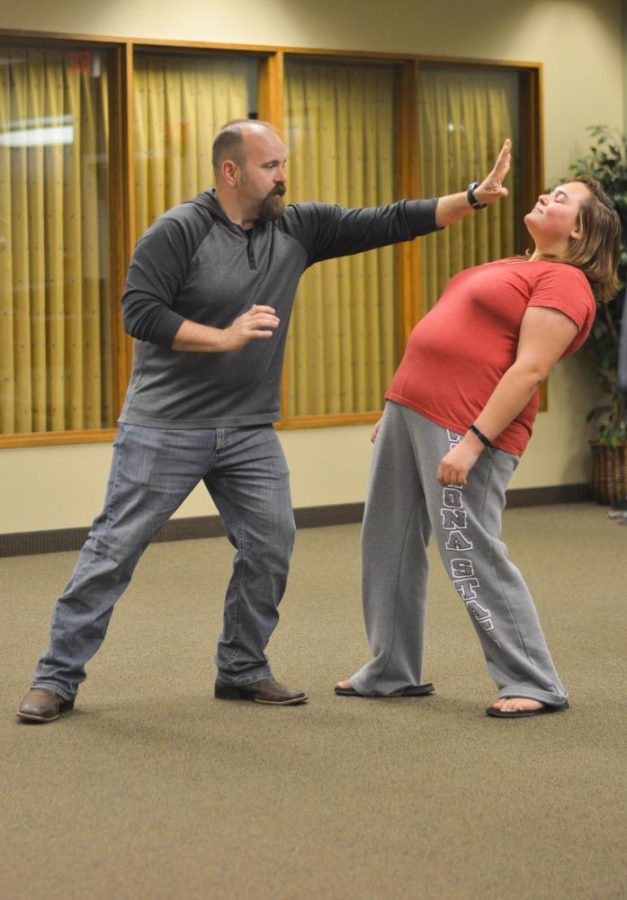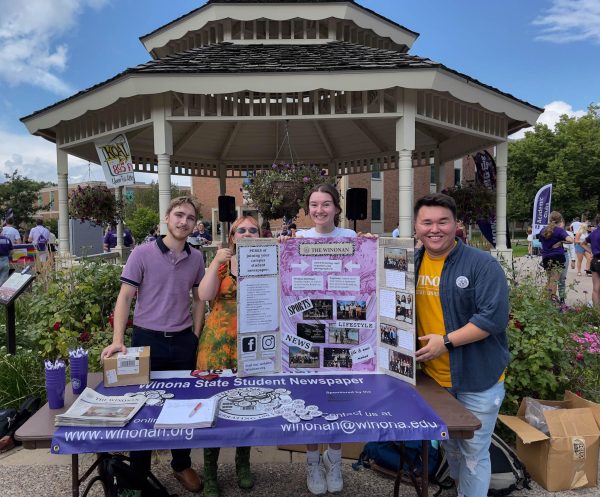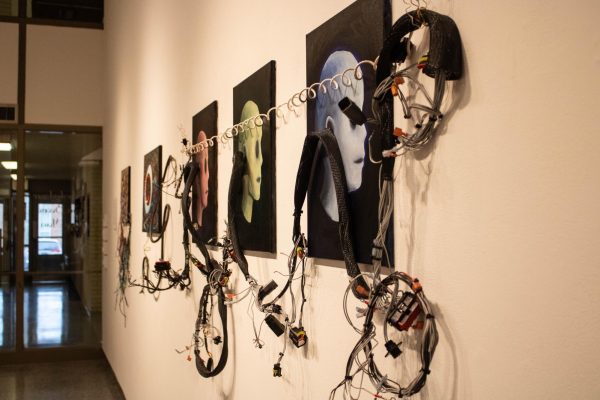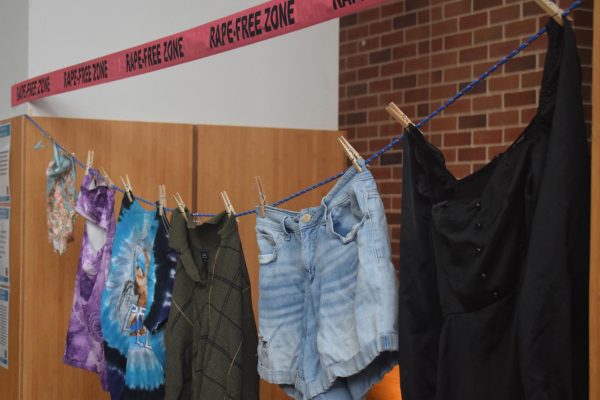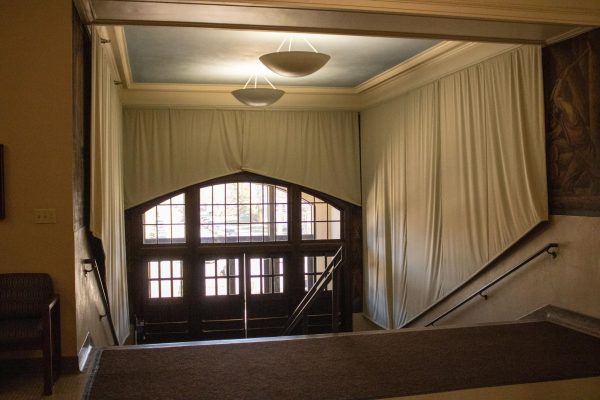West Campus Housing hosts self-defense class
Left to right: Deputy John Hazelton and Freshman Kateyln Nutt demonstrate a counterattack move during Housing and Residence Life’s self-defense class last Thursday, Oct. 5.
October 11, 2017
Winona State University’s Housing and Residence Life hosted a self-defense class last Thursday, Oct. 5.
The class was open to all students, as well as any faculty and staff that were interested.
In the past, Housing and Residence Life partnered with different departments on campus, but this year Housing and Residence Life offered to fund it with help from Winona State Security, who lent the department floor pads to practice self-defense moves.
Tau-Maria Hall Director Ann Durley was in charge of the class, which has been held for the past three years during the fall semester and occasionally during the spring semester with expressed interest.
“I feel like it is an important skill to have in terms of being able to defend yourself if something were to happen,” Durley said. “They also teach skills on what to look for in terms of your surroundings, things to keep in mind before you get into that type of situation.”
Deputy John Hazelton, who has been a deputy with the Winona Sheriff’s Office for 17 years, led the class and taught some basic tips about suspicious surroundings and what to look out for before getting into a dangerous situation.
“Avoiding is the most important thing to do,” Hazelton said. “Some things you could do is go out in groups and always have a plan. Predators are looking for meek prey and will not attack when you are not by yourself.”
Another piece of advice Hazelton gave was to never wear headphones or look at a phone at night by yourself. Looking at a phone at night can cause tunnel vision and decrease awareness of surroundings, as well as decrease night vision due to looking at the brightness of the screen.
Looking at a phone at night can cause tunnel vision and decrease awareness of surroundings, as well as decrease night vision due to looking at the brightness of the screen.
Hazelton said if a person thinks someone is following them, they should call 911. One way to be a good 911 caller is to answer questions about your location and phone number in case dispatchers need to get ahold of them later.
“You should never be afraid to call 911,” Hazelton said. “That is what we are there for.”
Hazelton suggested that people get Smart 911—which is available online. The program allows dispatchers to get a message showing the user’s exact location, which helps get officers to them sooner.
Police departments pay for this program and Hazelton said it is getting quite popular.
Hazelton also suggested if a person is going to buy pepper spray, they should buy two of them—one to use and the other practice with so they can have the reflex to use it in a dire situation.
“You should also buy the pepper spray that has OCCS on it because it is more damaging,” Hazelton said. “CS is straight pepper spray and OC is a tear gas component. It opens up the tear ducts which allows the pepper spray to get further in.”
Hazelton said pepper spray takes about three seconds to work and can be found at Fleet Farm, Menards, Wal-Mart and many other stores.
Another effective alternative to pepper spray is bee spray because it has a range of 25 yards, Hazelton said, but the user would have to learn how to use it to make sure it has direct contact with the attacker.
Hazelton ended the evening by showing everyone how to get out different holds and how to attack back.
“You just have to know what you are willing to do and fight back,” Hazelton said. “It is okay if you are not able to fight back, that does not make you a bad person. You should also not be afraid to report it.”























































